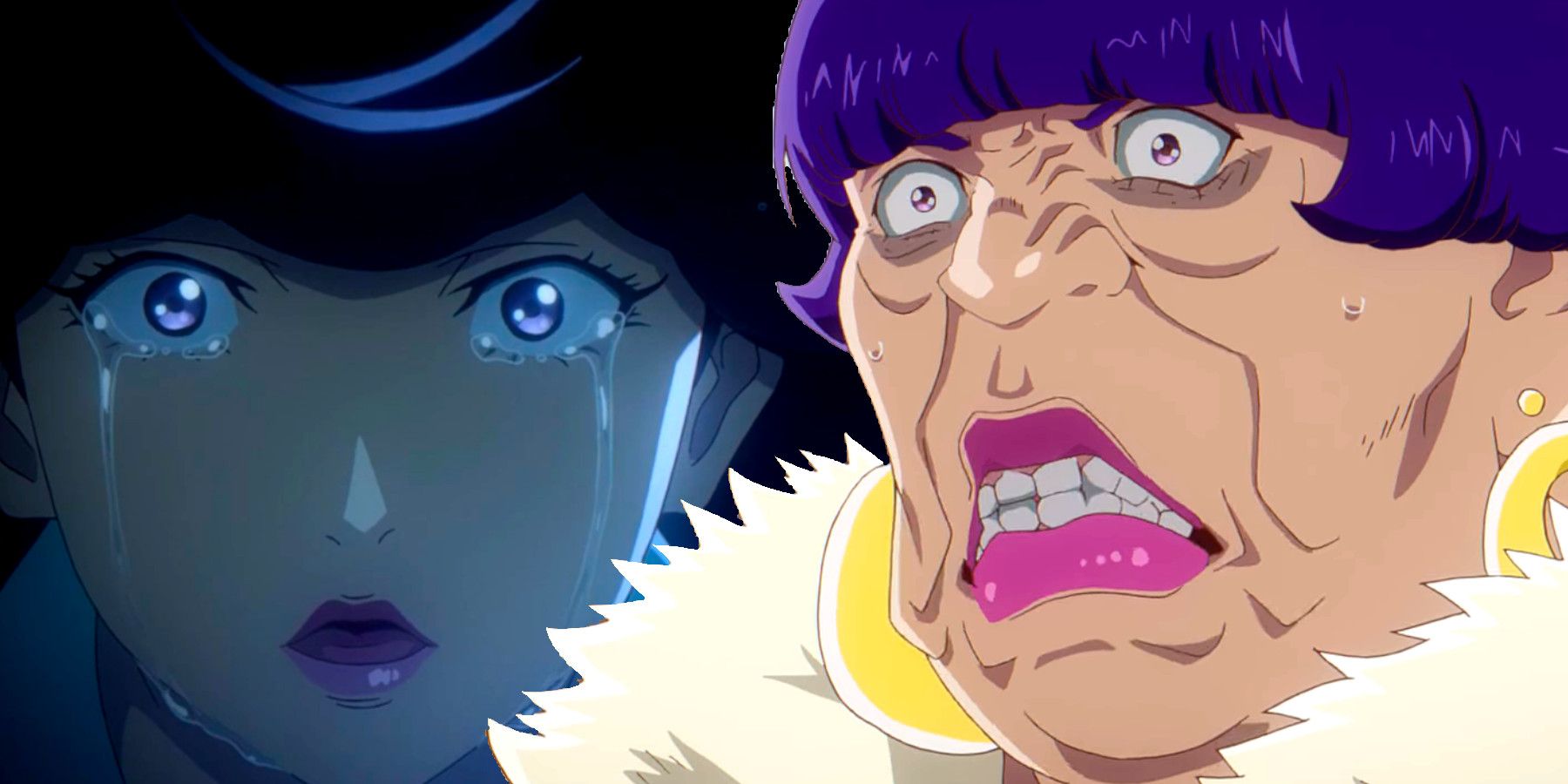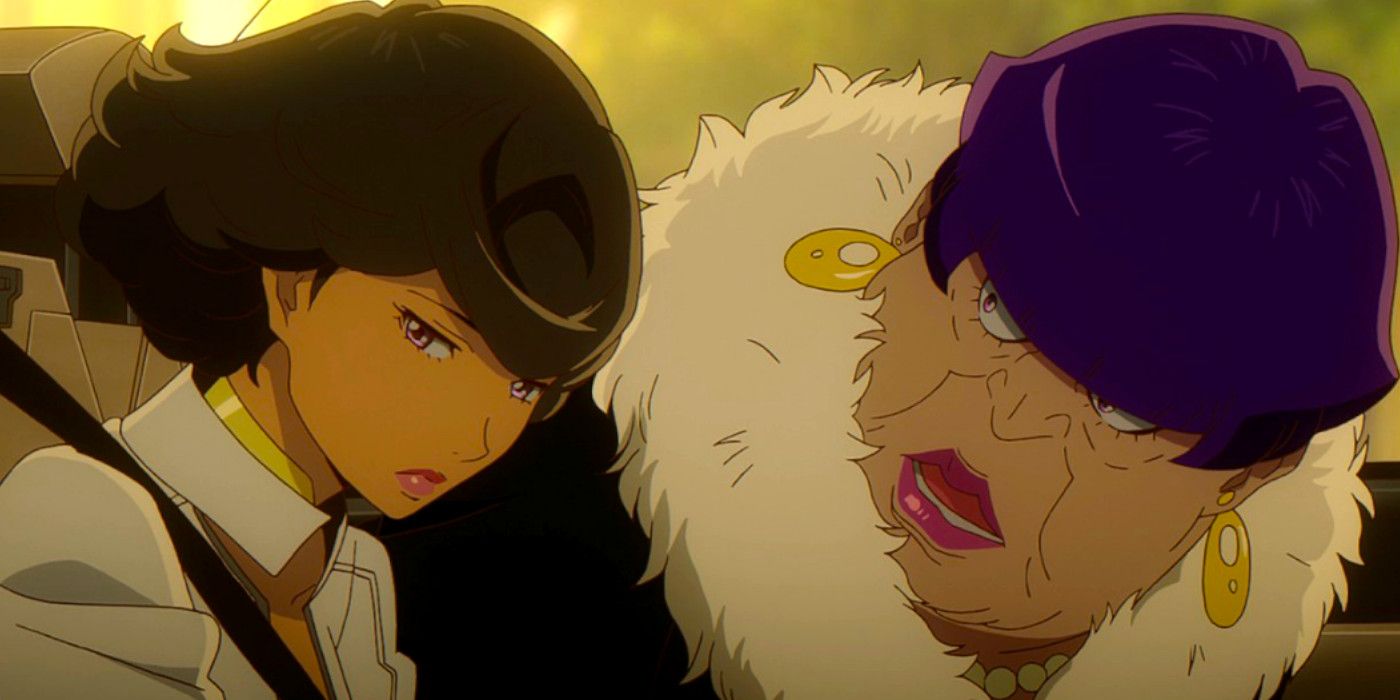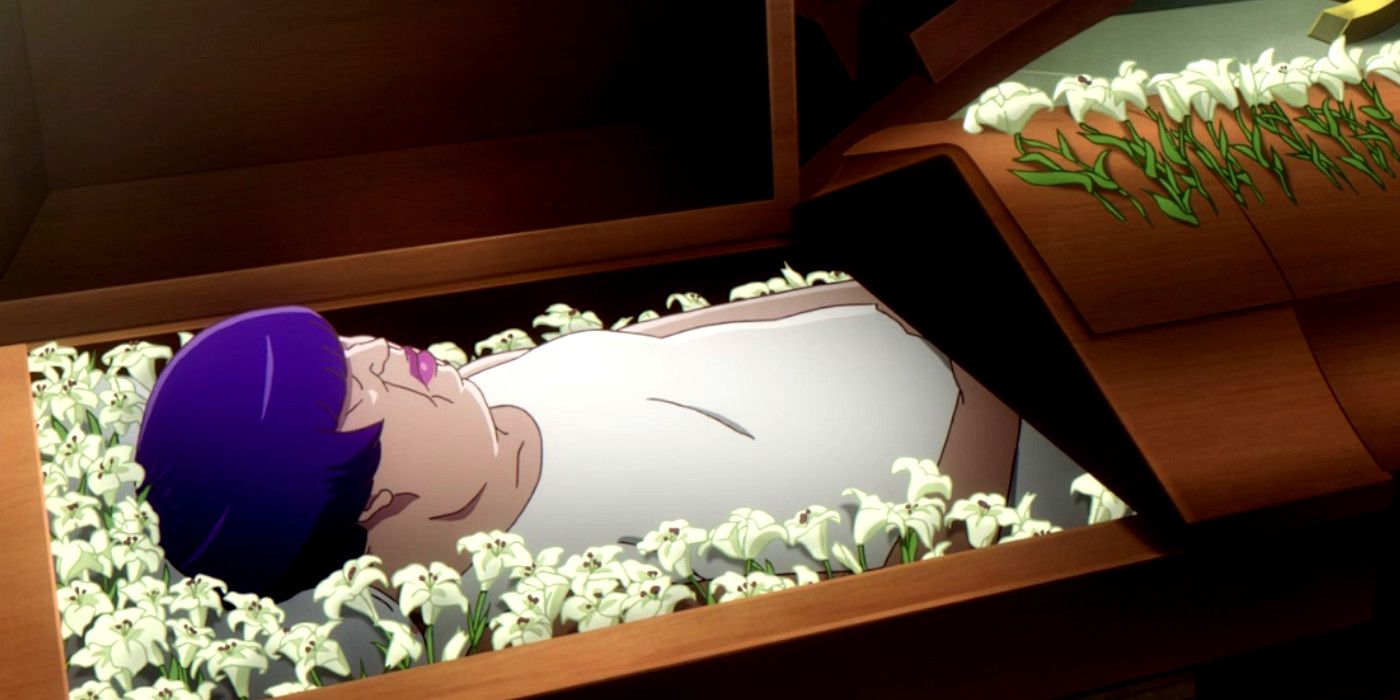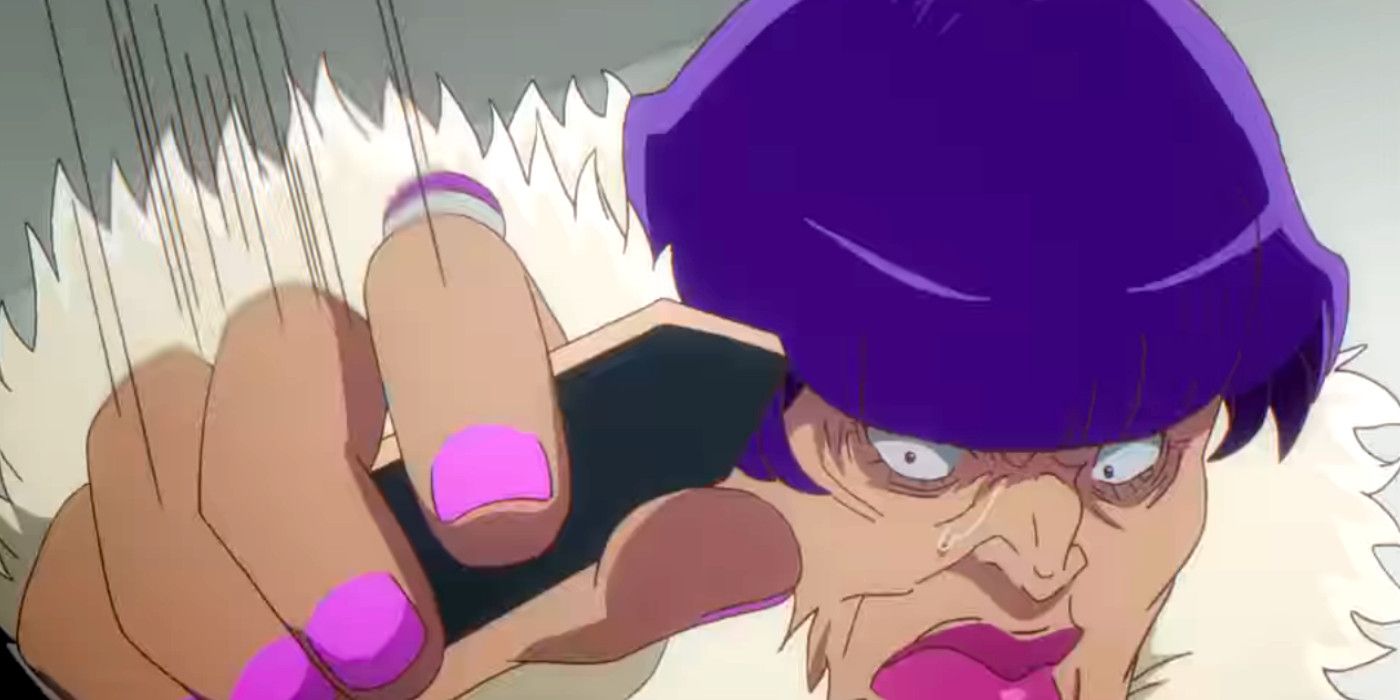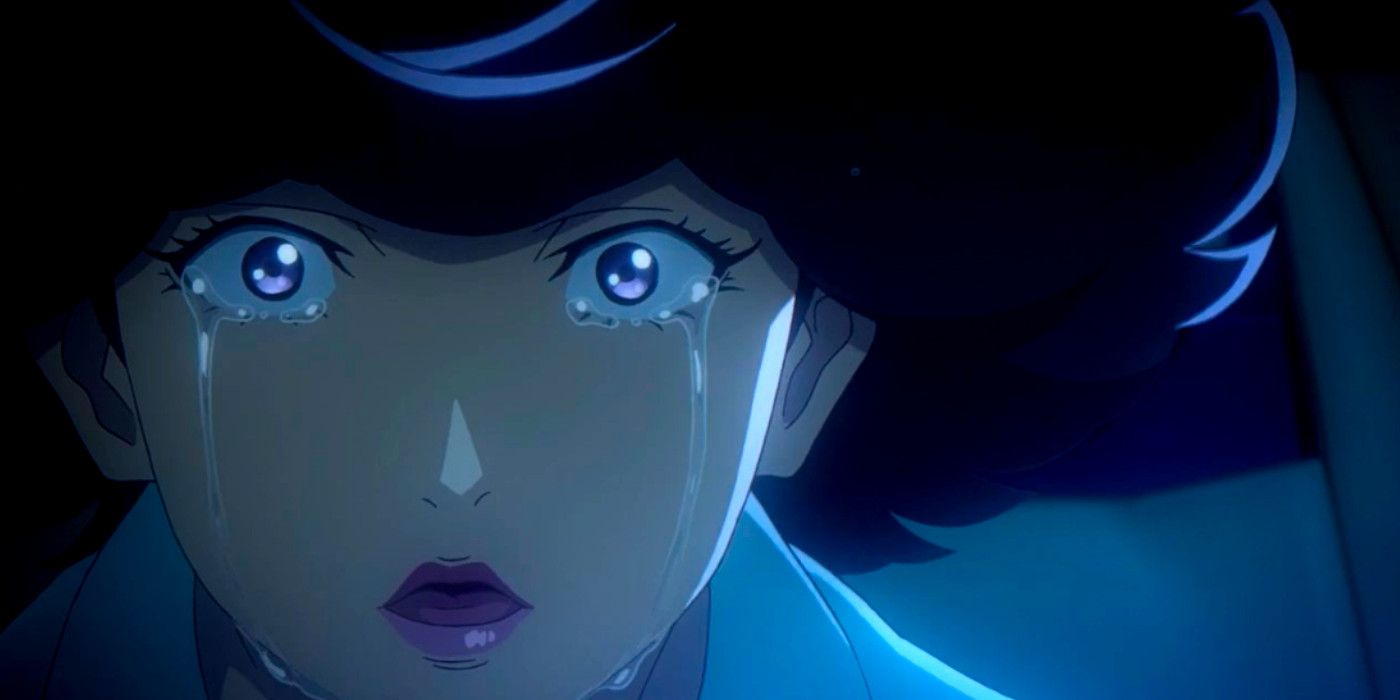Dahlia Carpenter was once a child star, but sadly she was not fortunate enough to stay relevant and was eventually phased out of showbusiness. Now that her own daughter is following in her footsteps, Dahlia is determined not to allow Angela to make the same mistakes.
But her words of wisdom become twisted tools to control every part of Angela's career, causing a rift between mother and daughter. Regardless of their past conflict, Dahlia stayed on as Angela's agent as she faced off against Carole and Tuesday in Mars' Brightest's talent contest.
Dahlia and Angela
Although Dahlia is regularly seen by her daughter's side, the tension between the two is palpable. At the tender age of sixteen years old, Angela lives alone, and not just because she can afford to. The starlet's safety comes into question when the Black Knight's stalker tendencies become more threatening, but Angela outright refuses to live under the same roof as her mother, regardless of the risks. It becomes apparent that, despite how scared she is of this unknown creep, Angela is much more afraid of her own mother, who appears to have gotten physically abusive in the past.
Viewers never witness Dahlia laying a hand on anyone, however, it is clear that she is short-tempered with possibly aggressive repercussions, indicated by the strained fist and jaw clench that is displayed every time Dahlia is refused anything. Angela is all too quick and willing to suspect her own mother of burning Tuesday in "With or Without You", confronting Dahlia as the possible aggressor without a second thought.
Dahlia's Death
In "Immigrant Song," a brutal exchange of words takes place where Angela's adoptive status is flung out with demeaning undertones, along with a flurry of further insults from Dahlia. Angela's mother gets so worked up that she appears to have a stroke or heart attack, and subsequently falls into a deep coma. She only wakes up once, reassuring Angela that she loves her (supposedly for the first time ever) before she drew her last breath. Suddenly, all of Dahlia's wrongdoings were forgotten, and the abusive parent dies a martyr.
Dahlia and Gus had a very tense relationship, rarely exchanging niceties and resorting to flinging insults instead. Although it seemed to stem from professional conflict rather than personal issues, the animosity is undeniable. Strangely enough, Gus appeared to be overwhelmed with grief at Dahlia's passing, incapable of even attending her funeral, supposedly due to the intensity of his emotions. It seems that Gus secretly had a lot of respect for Dahlia, as he visits her grave in person to honor his fallen colleague. Gus and Dahlia both found and lost their fame at a young age, yet remained determined to keep chasing the dream, regardless of what anyone says.
Of course, Angela would be distraught at the death of her mother, and nobody is claiming that Dahlia's death should have been celebrated. But within the last few episodes, the tonal shift towards Dahlia was too sudden, and the extent to which she was praised and respected, regardless of her abuse, could be viewed as slightly tactless. Angela is so disturbed by the fact that her mother is not there to witness her Grammy performance, that she forgets to congratulate herself on her own achievements. If Dahlia were still in charge, Angela would have probably been forced into performing the AI's song and sacrificed the opportunity to express herself as an artist. And if Dahlia's control was still intact at the end, who knows if Angela would have participated in Carole and Tuesday's grand project, or ever have found her own voice.
Personally dedicating "Mother" to Dahlia shows that, despite all the resentment and hostility, Angela still respected her mother, and was grateful for all she sacrificed to promote her career. Even when Dahlia displayed signs of illness, she persevered with her work as an agent and showed the utmost concern if anyone posed a threat to her daughter's safety. Dahlia was not a complete villain, and at the end of the day, she had Angela's best interests at heart, well in her mind, anyway.
Representing the LGBTQ+ Community
The Carole and Tuesday creators really take liberty with the term "ambiguous", as Dahlia is reflected in a different light throughout the series. It is no secret that Dahlia appears to be a cis-male, as childhood photographs of Angela show her alongside a father figure. However, when Angela first confronts Dahlia about her violent nature, Dahlia suggests that her transition was to blame, insinuating that HRT pills were the cause for her aggression. Despite how inaccurate this association is, it does indicate that Dahlia is a transgender, now identifying as a woman with she/her pronouns, (and Angela never once falters to call her Mother.)
The narrative changes when Dahlia confronts Tao with her suspicions of performing experiments on her daughter. Dahlia attempts to threaten Tao by revealing his sinister past as a neuroscience researcher but is immediately put in her place. Tao admits to having uncovered some secrets of his own, insinuating that Dahlia is a hermaphrodite (with a criminal record for assault to boot). Dahlia does not deny these claims, and sullenly allows Tao to resume control over the project. Whether classified as transgender or hermaphroditic, Dahlia's "alternative" sexual identity is always linked to her violent tendencies, casting an unflattering light on the LGBTQ+ community.
Lesson Learned?
Angela goes through a significant amount of character development in Carole and Tuesday, transforming from an obnoxious and vain diva with a desperate need for approval, into an independent wholesome young lady who is finally starting to find herself. Dahlia's death had a lot to do with this drastic development, but was killing the antagonist off really the right decision?
Dispelling her victim complex was a huge step for Angela, especially after she was left to process the harsh last words left by her mother. This vital stepping stone in her ability to overcome abuse could have been utilized to create a much greater impact, as a tool to empower victims of abuse. If the abuser dies, one is simply left to deal with the traumatic memories, which is a task on its own, but lacks the satisfaction that voluntarily ending the relationship would bring.
If, instead of using Dahlia's death to inspire Angela's character growth, Angela could have realized how truly toxic their interactions were and enforced boundaries in order to protect herself from her mother. She had already begun this process, after all, when she moved out of Dahlia's home, but still kept her around professionally. Not allowing Angela the chance to voluntarily step away from the abusive situation is a missed opportunity for an important teachable moment that many viewers might benefit from witnessing.

